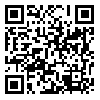BibTeX | RIS | EndNote | Medlars | ProCite | Reference Manager | RefWorks
Send citation to:
URL: http://jdisabilstud.org/article-1-1832-en.html
2- Department of Psychology, Karaj Branch, Islamic Azad University
Background & Objectives: Addiction is the most widespread and recognized health concern and risk in Iran. As a chronic and recurrent disorder, in addition to profound social, psychological, physical, and economic impacts on the consumer, addiction imposes significant psychological pressure on family members and society. The drug dependency of the family head is very harmful and destructive and has many adverse effects on all the family members and, most notably, the addicted wife. In such cases, some codependency in the woman causes them to exhibit a pattern of exaggerated and excessive behavior strongly influenced by the addicted spouse. This dependence continues until the individual loses his or her identity. Problem–solving styles and thinking styles can be effective in measuring facts and benefiting from capabilities, and dealing with negative emotions. So, this research aimed to investigate the relationship between thinking styles and problem–solving styles with the codependency of spouses of patients with addiction.
Methods: The method of this study was descriptive correlational. The statistical population was all spouses of substance abusers referred to addiction treatment centers in Tehran City, Iran, in 2018. Of them, 42 people were selected by convenience sampling. The inclusion criteria were as follows: living in Tehran, aged 18 to 35 years, and consent to participate in research. The exclusion criterion was the incomplete filling of the questionnaires. The study data were gathered via the Thinking Styles Scale (Sternberg & Wagner, 1992), Problem–Solving Styles Scale (Heppner & Petersen, 1982), and Codependency Scale (Spann & Fischer, 1990). After collecting the data, SPSS version 21 software was used to analyze them. At the level of descriptive statistics, mean and standard deviation, and at the level of inferential statistics, stepwise regression analysis was used. The significance level of the tests was considered 0.05.
Results: The results showed that the components of thinking styles, including libertarianism, conservatism, anarchism, collectivism, holistic, executive, judicial, detail–oriented, internal, legislation, monocracy, and hierarchy, had multiple correlations with codependency (p<0.001) and these 12 components together explained 49.6% of the codependency variance. Also, the components of problem–solving styles, including confidence in solving problems, tendency–avoidance style, and personal control, had multiple correlations with codependency (p<0.001), and these 3 components together explained 63% of the variance of codependency.
Conclusion: Based on the research findings, thinking and problem–solving styles can significantly reduce the attitude of codependent people about drugs and act as a shield and provide the right solution by thinking and making the right decision when faced with stressful factors and irrational requests of others.
| Rights and permissions | |
 |
This work is licensed under a Creative Commons Attribution-NonCommercial 4.0 International License. |





